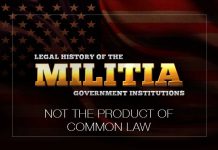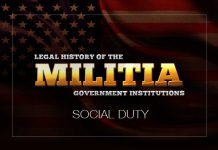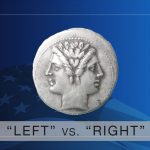Militia: Legal Background
Militia: Legal BackgroundIf you wanted to know what the word “Militia” meant during the colonial period, presumably you could have gone to a small...
“Militia”: What are They?
“Militia”: What are They?To understand the Constitution with respect to the Militia (and everything else it contains, for that matter), Americans must focus on...
How are Militia Created?
Militia CreationMilitia in this America were always the products of charters, ordinances, acts, and statutes—and, as such, they were both created and “regulated” by governments in,...
Militia: Not the Product of “Common Law”
Militia: Not the Product of “Common Law”Contrary to a belief enjoying some unwarranted currency among naive patriots today, no pre-constitutional Militia ever derived its authority...
Militia: The Primacy of Social Duty Over Individual Right
Militia: The Primacy of Social Duty Over Individual Right The principle of a universal legal duty for individual militia service persisted even after the Colonists...
Militia: Not Private Associations
Militia: Not in Any Sense Private AssociationsThe original Constitution refers to “the Militia of the several States”, not “the Militia in the several States”. This is because the...
Trained Bands
Trained BandsThroughout the pre-constitutional period from the mid-1600s to the late 1700s, Rhode Island designated the largest and most active components of her Militia...
Women and the Militia
Women and Militia Service During the pre-constitutional era women were subject to some Militia duties, if only of a financial nature. And if a...
Slavery and the Militia
Slavery and the MilitiaSlaves throughout the American Colonies were almost always disbarred from the possession of firearms, except under close supervision, no doubt on...
“Slave Patrols”
“Slave Patrols”To some, the history of "slave patrols" might suggest that revitalization of “the Militia of the several States” would actually be politically unwise—because...











































